
Shut Down Berks is building on small victories
The effort of the Shut Down Berks Coalition freed migrant children and families, but the fight is far from over.
While no families are currently being held at the Berks County Detention Center, located in Leesport, PA, it was one of Pennsylvania’s three detention centers for immigrant families.
Berks has a detailed and documented history of detaining children as young as two-weeks-old, medical neglect, sexual assault, and unfair working conditions and wages.
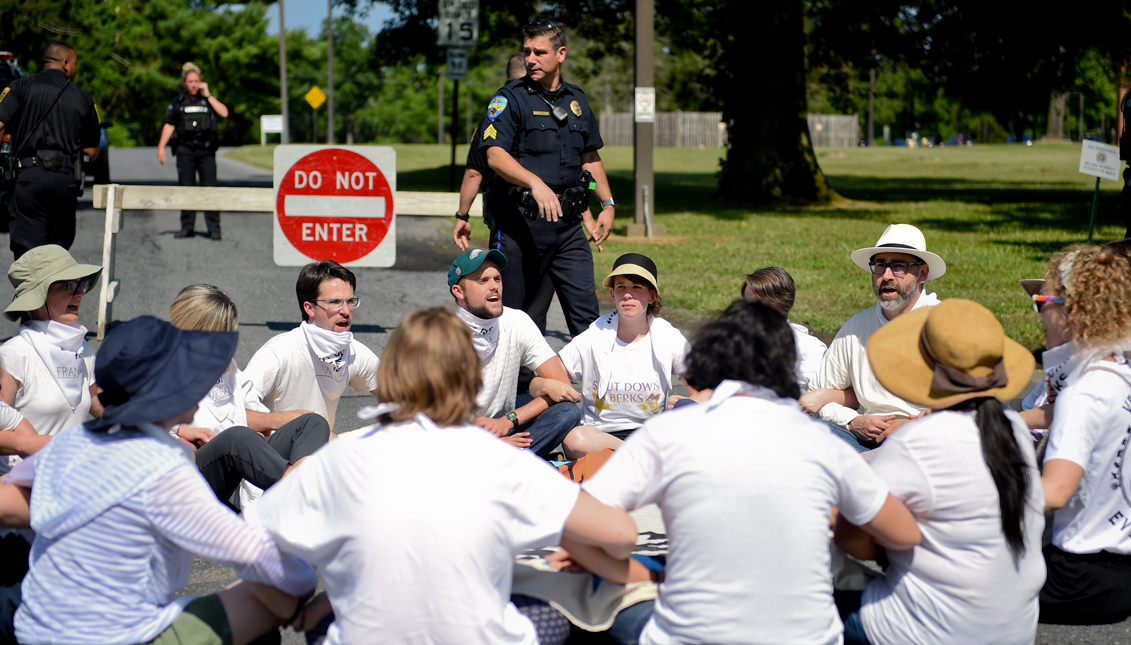
According to Jasmine Rivera, a Community Organizer for Shut Down Berks Coalition, migrant detainees were forced to wear the same clothes every day that they wore when first crossing the border, including undergarments.
“So, imagine wearing the same pair of underwear for two years,” Rivera said.
“So, imagine wearing the same pair of underwear for two years,” Rivera said.
To solve this, members of the coalition began asking families what they needed in terms of clothing, and obtained their sizes. They were able to crowdfund for the clothes, but ran into an unexpected roadblock.
In November 2014, a case of sexual assault surfaced, and it was discovered that a staff member of Berks was grooming and sexually abusing a 19-year-old mother.
In a twisted form of a preventative response, the facility decided its women detainees could only dress in loose-fitting clothing, so as to not “arouse” any guards or other staff members.
The archaic rule meant all the clothes Rivera and her team provided had to be approved by the staff, and all clothing items deemed inappropriate or “too tight,” were discarded.
In 2017, the organization also found out the Berks staff were no longer providing detainees with hygienic items, such as soap, shampoo, toothpaste and deodorant.
“So then we had to start bringing that in, just basic things for people to clean themselves with. They weren’t giving them anymore,” Rivera said.
This was just the beginning of the many headaches faced by the coalition in their battle to shut down the detention center and liberate the innocent families housed there.
The legal name for the center is Berks County Residential Center, but as Rivera said, the coalition members are “very clear in the way we talk about things.”
“We’re going to call it what it is. It’s a prison cell. We call it a detention center because people can’t leave on their own free will,” she said.
The organization, which is made up of lawyers, organizers, immigrant leaders, and allies, has been working towards closing Berks since 2015, and it wasn’t until 2021 that that goal was achieved.

On Sunday, Feb. 28, PA Senator Bob Casey announced that all the families residing at Berks County Residential Center in Pennsylvania had been released.
“This is a long overdue step to deliver justice to vulnerable migrant families, including children,” Casey wrote in a tweet.
The victory was a direct result of the tireless efforts from the many members of the Shut Down Berks Coalition.
It was a significant win, but the journey was long and strenuous, and it’s still far from over.
The fact that Berks was able to stay open for such a long time is questionable, considering the illegality of its operation.
For example, in 2009, and then again in August 2015, a federal court ruled the practice of detaining children in jail-like environments for extended periods of time was illegal and ordered ICE to comply with the original Flores Agreement, which determined family detention was illegal.
Yet, the facility continued to run, and Shut Down Berks continued to fight, oftentimes alongside the detained migrants themselves.
In August 2016, 22 mothers staged a hunger strike to protest spending an entire year in custody. They wrote a letter to DHS Jeh Johnson, writing their children had repeatedly considered taking their own lives due to the “confinement and desperation” of living at the facility.
The protest came after Johnson defended the Obama administration’s controversial family detention practices by telling reporters: “the average length of stay at these facilities is 20 days or less.”
Also in 2016, 14 mothers staged their own protest because they knew members from Shut Down Berks would be protesting simultaneously outside of the center.
Rivera said the women self-organized on the inside, brought their children to the protest and created shirts with powerful slogans, but were separated from the coalition by a fence.
“It was always clear, we’ve always been told by [Berks] that we couldn’t be on the other side of the street, and we can’t cross onto their property,” Rivera said.
“And all the little babies, they were two, three, four years old; they were also protesting. We had some folks who decided to cross the street and hug them and they were arrested for hugging,” she continued.
In 2018, a group of psychiatrists, after hearing of the work of Shut Down Berks, independently organized to demand Governor Tom Wolf enact an emergency removal order, citing multiple ways in which detention is not only harmful, but illegal.

Rivera herself did some research into the legal issues, and then joined forces with the Scheller Center for Social Justice at Temple University to produce a legal memo that outlined the legal powers of PA DHS and the Governor to close the Berks Detention Center.
The memo outlined some key findings that easily could have led to the official shut down of the facility, but unfortunately did not.
RELATED CONTENT
The Pennsylvania Department of Human Services (PA DHS) has the authority to regulate Berks. Despite Berks still holding federal detainees, the state laws regarding the operation of child residential facilities still apply.
PA DHS would not be violating federal law (it would be complying with the Flores Agreement) if it were to issue an Emergency Removal Order or a Cease and Desist Order.
Despite all the documented abuse, the psychological harm, the legal issues and the memo from the Sheller Center, no such ERO was enacted.
Rivera believes it was because “it wasn’t worth the political capital.”
Rivera believes it was because “it wasn’t worth the political capital.”
“And that’s ultimately what it comes down to, is that the Democratic Party has made a very clear decision that they’re not going to be champions for immigrants. And very specifically, the governor, Wolf administration has made that decision that this is not something that they’re going to spend political capital on,” she said.
The families detained at Berks were released in February, but shortly after the win, it was discovered that ICE and Berks County had plans to convert the space into a prison for adult immigrant women.

On Monday, March 8, over 100 organizations, including Shut Down Berks, penned a letter to the Biden administration, urging them to terminate all ICE and DHS contracts within the country, and to shut down the Berks County center once and for all.
Later that month, Make the Road PA and seven individual community members sued the Berks County Commissioners for violating the Sunshine Act by engaging in secret deliberations concerning an ICE proposal for future use of the facility.
On Monday, June 7, a Berks County judge ruled that Berks residents who sued the commissioners for voting to support ICE’s plan without public participation and permission, can move forward with their claim, marking another victory for the movement.
However, the future of the center still hangs in the balance, and the fight to end family detention and detention of all migrants in the U.S. forges on.
“We are here to fight for the liberation of all people. While we are very focused on the day to day effort to shut down this prison, it is a small focus. We are part of a bigger movement and we are in complete solidarity with other movements,” Rivera said.
This sentiment is also shared by Adrianna Torres-García, the Program Director of the Free Migration Project, which is a part of the Shut Down Berks Coalition.
Torres-García believes in both abolition and decolonization as core values for her work in the coalition and within the broader social movement.
“I’m a proponent of abolition when it comes to prison, but also when it comes to immigration, specifically because I see the two of those as connected to the harm. And they harm similar groups of people, and both are based on racism and xenophobia, and not really on anything that’s factual,” said Torres-García.
She doesn’t believe real freedom can be achieved until everyone in detention is free. Freedom will not exist “until people who are fleeing from harm or just wanting to come to this country to build a life for themselves are able to do that without being caged.”
Torres-García sees decolonization as more of a long-term project that can only truly start once abolition is complete. Once the system is abolished and a more just and fair system is created, then the process of decolonizing both minds and systems can begin.
“I don’t think we can have full freedom until we recognize that this land is stolen. I think it is important that we see the land and we see material resources to the original people of this land,” she said.


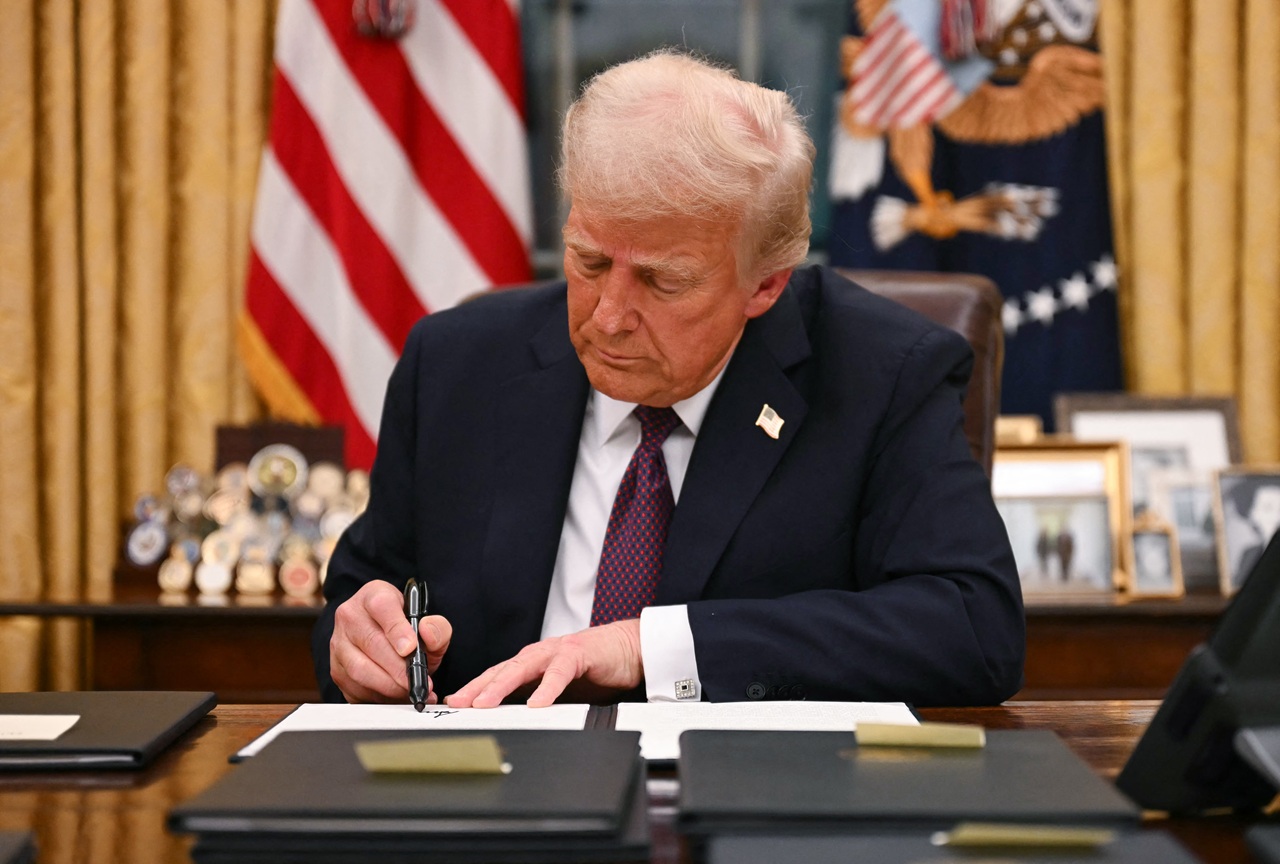

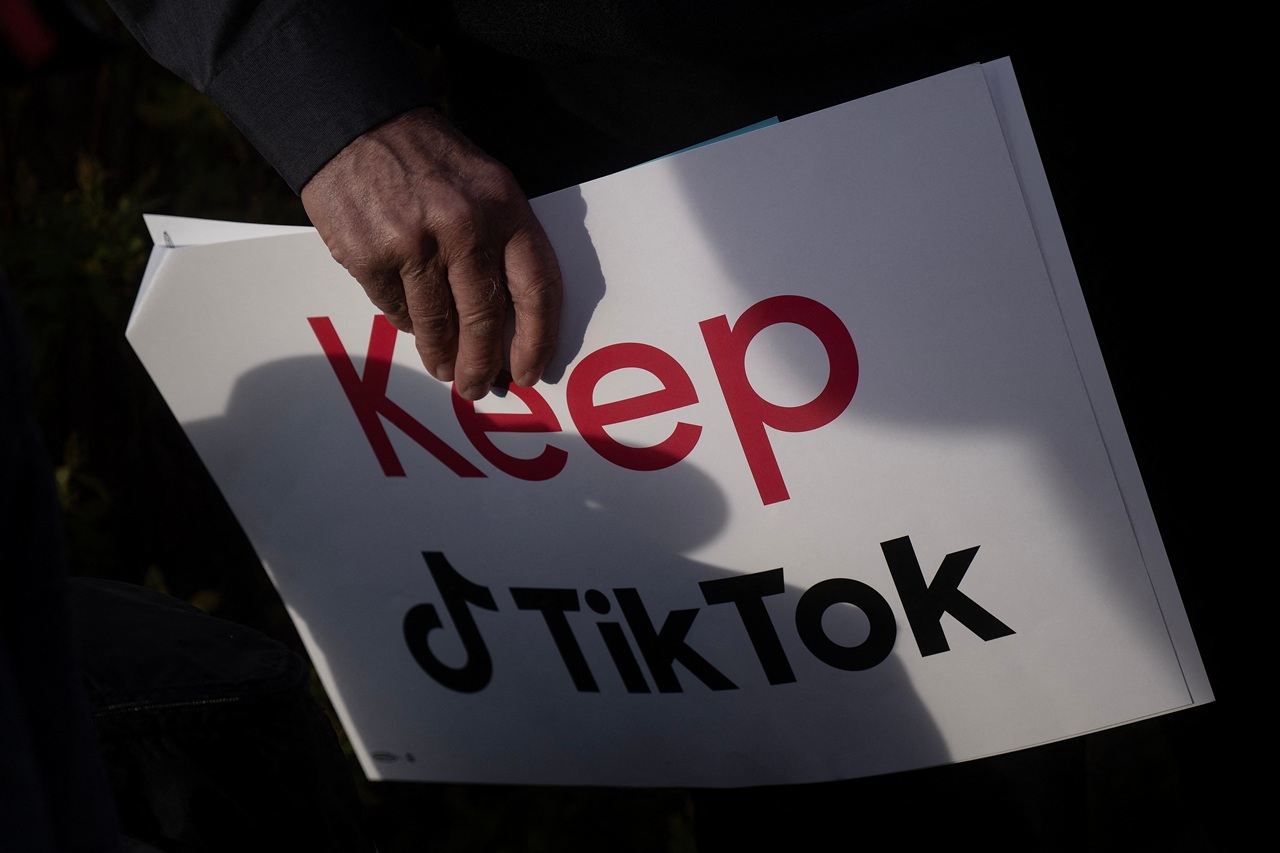



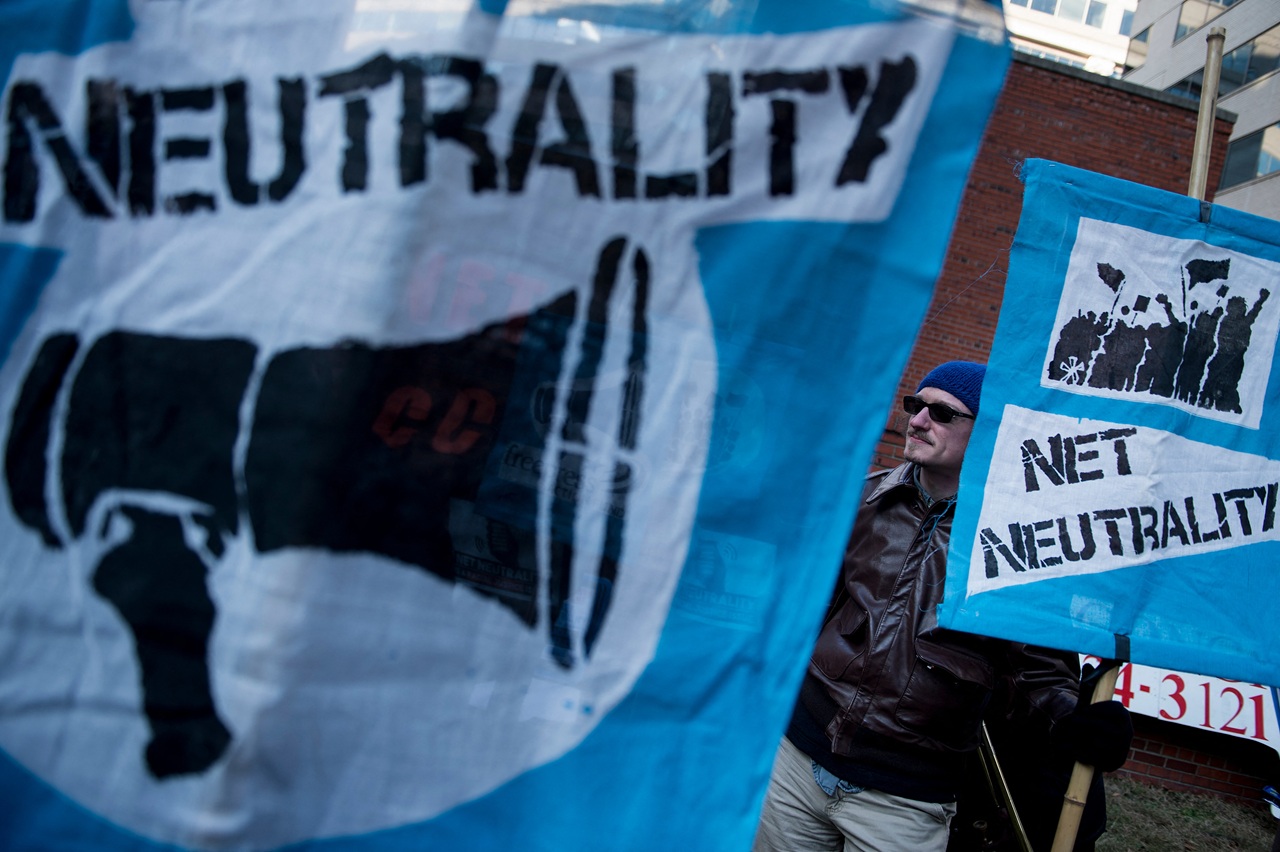
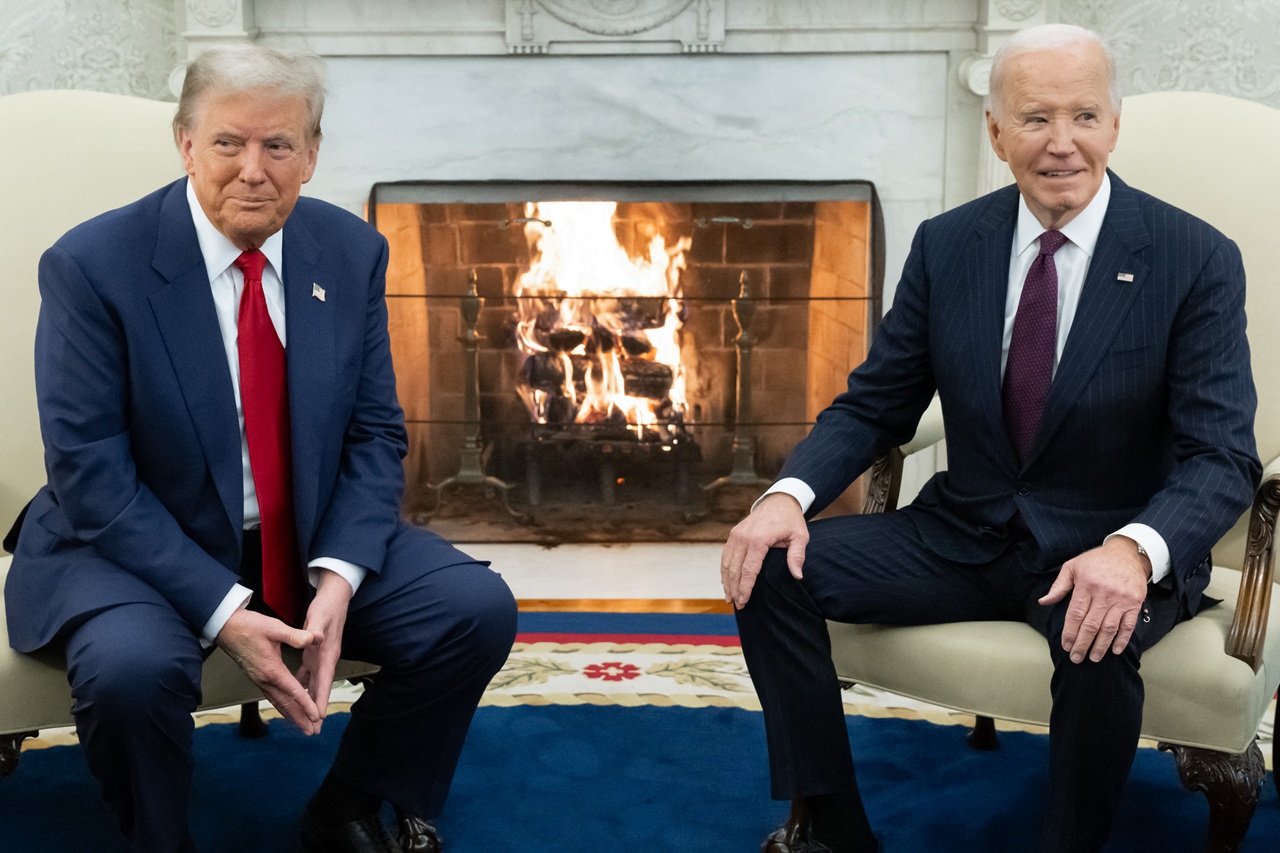

LEAVE A COMMENT: